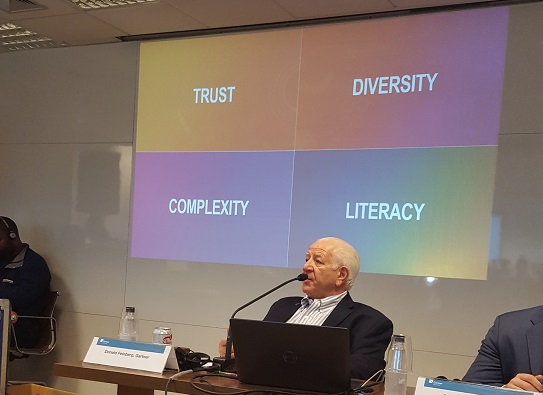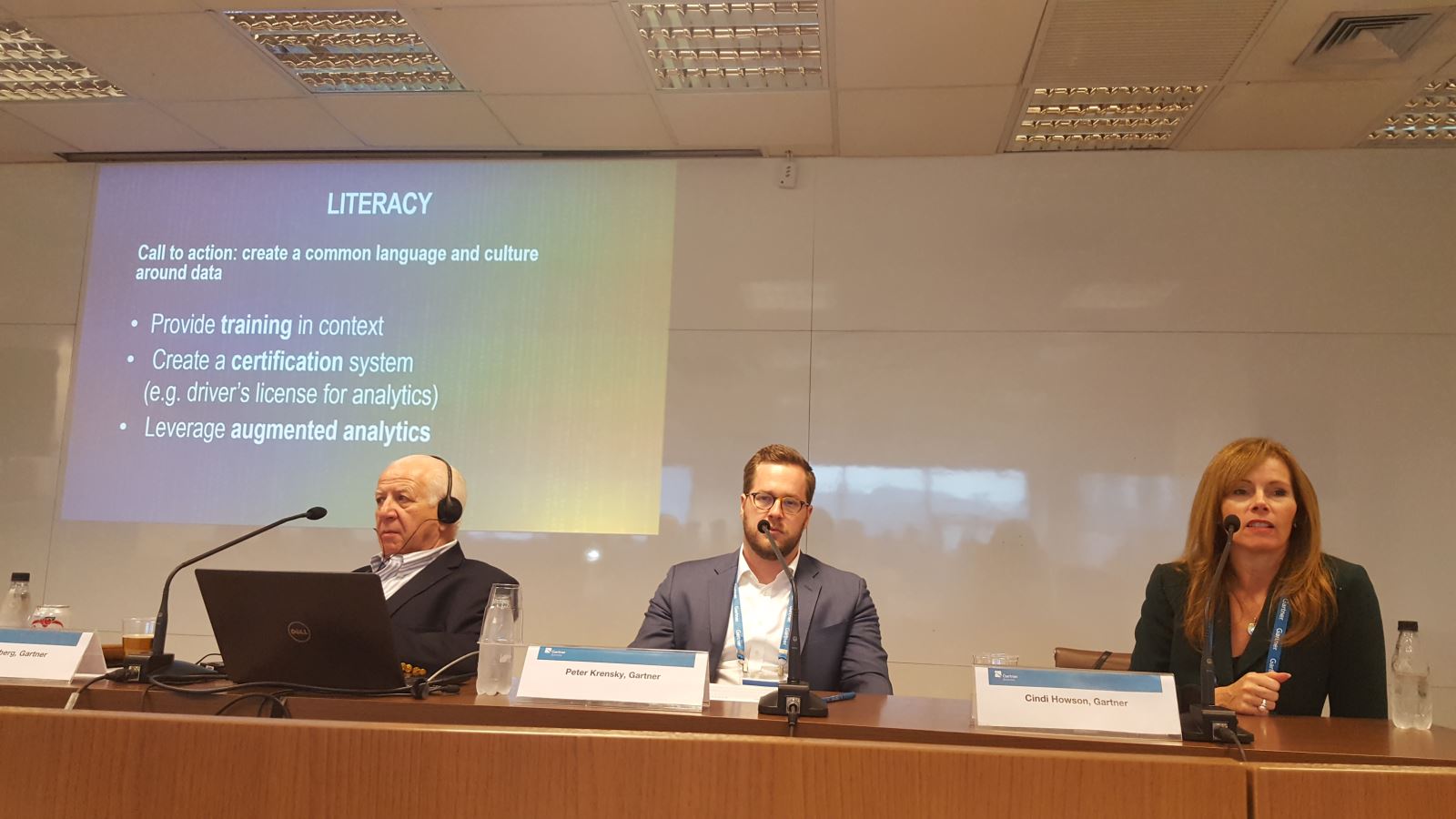With the rise of data and analytics, artificial intelligence (AI) and machine learning becoming the new core elements of digital business, Gartner says data analytics is pervasive and becoming the underpinning for different business models. Business.

Donald Feinberg
At the opening of the Gartner Data & Analytics Summit and press conference, which took place on May 22 in São Paulo, Donald Feinberg, vice president and analyst at Gartner, said that there is an unprecedented opportunity to expand the database. companies, accelerate discoveries and value generation through analytics tools. And to achieve that, analysts at Gartner said, however, that data and analytics leaders must master four key dimensions of scale: trust, diversity, complexity, and education.

Peter Krensky
Challenge 1: Trust
In a world of increasing fraud, uncertainty, alternative facts and fake news, trust seems to be a rare commodity. But trust is a critical issue in digital business – nothing works without trust. Companies must work to ensure that all stakeholders trust their data and provide a level of observation and analysis of data that most organizations do not have today. Feinberg said that “fake news generates fake data as well,” affecting trust in data.
"There's a new playbook when it comes to trusting data," said Peter Krensky, senior research analyst at Gartner. “This manual uses two techniques – crowdsourcing and automation. With crowdsourcing, ordinary users will bookmark what they do and provide a record of data lineage along the way. By having the user tag metadata as it goes through the natural workflow, this creates a more dynamic method of trusting the data. Automation refers to the growth of data catalogs as a critical capability of how data is managed. Adopting these two techniques will substantially increase confidence in the data through the ability to verify where it came from.”
Cindi Howson
Challenge 2: Diversity
Diversity includes algorithms, people and data. As opinions and biases are encoded into algorithms, “organizations must create better methods of verifying the assumptions and data used in the algorithms to ensure they are fair and inclusive of the outliers,” said Cindi Howson, vice president of Gartner research. This is especially difficult when the tech industry lacks diversity and often focuses only on visible differences such as gender. "Among the people who lead the construction of the algorithms there must be diversity of thought, gender and ethnicity. Furthermore, it is necessary that the data be easily accessible to promote integration".
Challenge 3: Complexity
Complexity is a challenge because of the difficulty of really understanding the dynamics of the business and having the time to respond appropriately.
“Today's data and analytics leaders have the opportunity to build ever more accurate data and analytics platforms. These platforms will provide more context from comprehensive data collection, greater understanding of a robust measurement and classification system, and more time to respond from low-latency systems,” Krensky said. “Greater context, understanding and low latency turn overwhelming complexity into a competitive advantage. Understanding the pattern behind the complexity speeds up response time. Mastering this complexity is key to successful analytics initiatives.”
Challenge 4: Training
As companies are empowered with more diverse teams and more complex data, the need to "talk about data" in everyday life has never been greater.
"If there is no common language with which to interpret the various data sources in the organization, there will be fundamental communication challenges when using data-driven and analytics-driven solutions," said Cindi Howson.
In Gartner's third annual Chief Data Officer Survey, respondents said the second most significant obstacle to progress with data and analytics is poor data literacy. Data and analytics leaders must learn to treat information as a second language and master data analytics tools as a core element of digital transformation.
Gartner expects that by 2020, 80% organizations will begin deliberate competency development in the field of data literacy, recognizing their extreme deficiency. "Developing this kind of knowledge of data can be disruptive," said Howson. “Assessing the data mastery of the people who create and consume information is a key step in ensuring that the organization is empowered with the right skills to meet the current and future requirements of the digital society.” The analyst cited the teaching of statistics to students in Chinese schools, as an example of a way to start training in data analysis in childhood.
Regarding the General Data Protection Regulation, better known by the acronym “GDPR”, Feinberg believes that regulation is still necessary, even if it disappears in the long term. “Companies are responsible for the data they hold on their customers. In recent days, Europeans have received several emails, in which companies ask for consent to keep the information in their database. There are organizations that are deleting sensitive personal information, such as address, because of the risk that a possible leak poses, including the sanctions provided for in the GDPR.” In any case, system vulnerabilities must be continually corrected to avoid exposure to risks and, at the same time, improve the Information Security System.
















